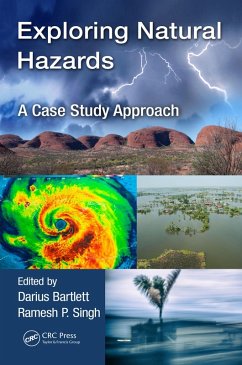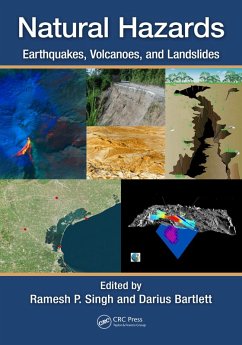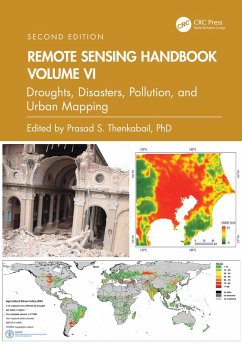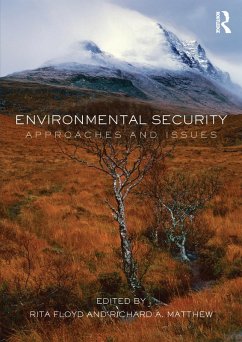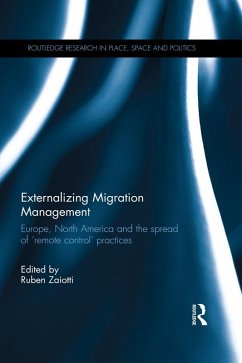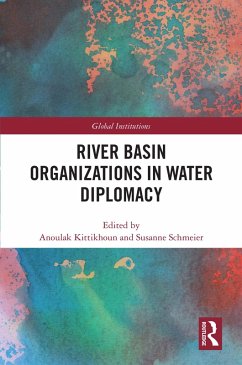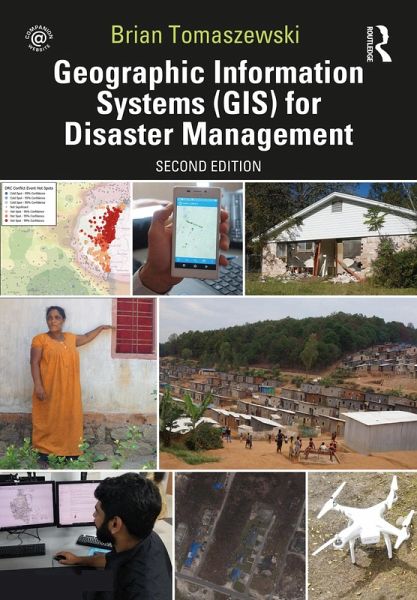
Geographic Information Systems (GIS) for Disaster Management (eBook, ePUB)

PAYBACK Punkte
56 °P sammeln!
Now in its second edition, Geographic Information Systems (GIS) for Disaster Management has been completely updated to take account of new developments in the field.Using a hands-on approach grounded in relevant GIS and disaster management theory and practice, this textbook continues the tradition of the benchmark first edition, providing coverage of GIS fundamentals applied to disaster management. Real-life case studies demonstrate GIS concepts and their applicability to the full disaster management cycle. The learning-by-example approach helps readers see how GIS for disaster management oper...
Now in its second edition, Geographic Information Systems (GIS) for Disaster Management has been completely updated to take account of new developments in the field.
Using a hands-on approach grounded in relevant GIS and disaster management theory and practice, this textbook continues the tradition of the benchmark first edition, providing coverage of GIS fundamentals applied to disaster management. Real-life case studies demonstrate GIS concepts and their applicability to the full disaster management cycle. The learning-by-example approach helps readers see how GIS for disaster management operates at local, state, national, and international scales through government, the private sector, non-governmental organizations, and volunteer groups.
New in the second edition:
Learned yet accessible, Geographic Information Systems (GIS) for Disaster Management continues to be a valuable teaching tool for undergraduate and graduate instructors in the disaster management and GIS fields, as well as disaster management and humanitarian professionals.
Please visit http://gisfordisastermanagement.com to view supplemental material such as slides and hands-on exercise video walkthroughs. This companion website offers valuable hands-on experience applying concepts to practice.
Using a hands-on approach grounded in relevant GIS and disaster management theory and practice, this textbook continues the tradition of the benchmark first edition, providing coverage of GIS fundamentals applied to disaster management. Real-life case studies demonstrate GIS concepts and their applicability to the full disaster management cycle. The learning-by-example approach helps readers see how GIS for disaster management operates at local, state, national, and international scales through government, the private sector, non-governmental organizations, and volunteer groups.
New in the second edition:
- a chapter on allied technologies that includes remote sensing, Global Positioning Systems (GPS), indoor navigation, and Unmanned Aerial Systems (UAS);
- thirteen new technical exercises that supplement theoretical and practical chapter discussions and fully reinforce concepts learned;
- enhanced boxed text and other pedagogical features to give readers even more practical advice;
- examination of new forms of world-wide disaster faced by society;
- discussion of new commercial and open-source GIS technology and techniques such as machine learning and the Internet of Things;
- new interviews with subject-matter and industry experts on GIS for disaster management in the US and abroad;
- new career advice on getting a first job in the industry.
Learned yet accessible, Geographic Information Systems (GIS) for Disaster Management continues to be a valuable teaching tool for undergraduate and graduate instructors in the disaster management and GIS fields, as well as disaster management and humanitarian professionals.
Please visit http://gisfordisastermanagement.com to view supplemental material such as slides and hands-on exercise video walkthroughs. This companion website offers valuable hands-on experience applying concepts to practice.
Dieser Download kann aus rechtlichen Gründen nur mit Rechnungsadresse in A, B, BG, CY, CZ, D, DK, EW, E, FIN, F, GR, HR, H, IRL, I, LT, L, LR, M, NL, PL, P, R, S, SLO, SK ausgeliefert werden.







